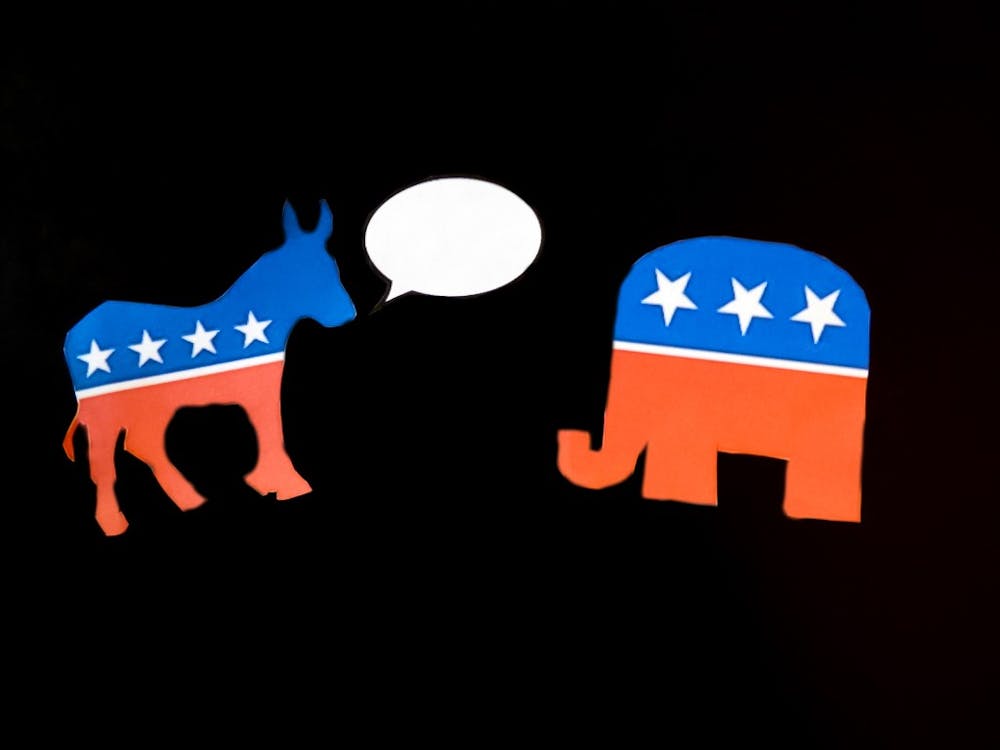
Columnist Tejaswi Bhavaraju urges readers to be ready to listen to counterarguments to their own political opinions.
Credit: Ezra TroyFor the past few months, politics has dominated many of our lives, with the upcoming elections being at the forefront of many people's minds. But while this influx of new information should inspire us to be more politically active, it is crucial for us as students to draw a line in politics and separate political judgments from our daily interactions.
A recent study published through our very own Annenberg School for Communication discusses the extent to which we make political inferences from our ordinary day-to-day interactions and the “consequences of political stereotypes of everyday activities.” The study concludes that partisan divisions can permeate our social interactions very easily, based on judgments we make about others’ basic elements of life such as where they prefer to eat, or even where they would like to work. But the more concerning aspect of the study is the consequence of such tendencies, with it noting that making such distinctions between people based on minute cues makes it more appealing to avoid discussion with those from opposing viewpoints.
A debate was organized by the Government and Politics Association a few weeks ago where members of Penn College Republicans and Penn Democrats argued why their party’s presidential candidate is best fit to lead the country. It was a great display of organized debate around the upcoming elections. However, it is important to realize that most of our individual conversations around politics are not as organized as this debate. And it follows from the above study that much worse than having informed debates, we have a tendency to avoid conversations completely, based on unfounded political stereotypes.
I am not proposing that everyone should constantly engage in political debates with each other. What I am saying is that it is very helpful to listen to different opinions and keep an open mind. But what is more important are the reasons that keep us back from interacting with opposing viewpoints. A lot of people go into political conversations with the objective of winning the debate, and that objective always makes it unattractive to step into the conversation. The goal seems to be to convince the other person that you are right.
Despite all this, we should be ready to listen to counterarguments to our opinions just for the sake of it. It can make us see what is wrong about our own flow of thought or make our own argument even stronger by helping us see what those who disagree with us think of it. First, we have to be willing to change our mind, because after all, that’s what it’s for. But second, we should also know where to draw the line in politics, and resist the urge to make political assumptions about different people.

TEJASWI BHAVARAJU is a College sophomore from India, studying Mathematical Economics and Cinema Studies. His email address is tejaswib@sas.upenn.edu
The Daily Pennsylvanian is an independent, student-run newspaper. Please consider making a donation to support the coverage that shapes the University. Your generosity ensures a future of strong journalism at Penn.
Donate



